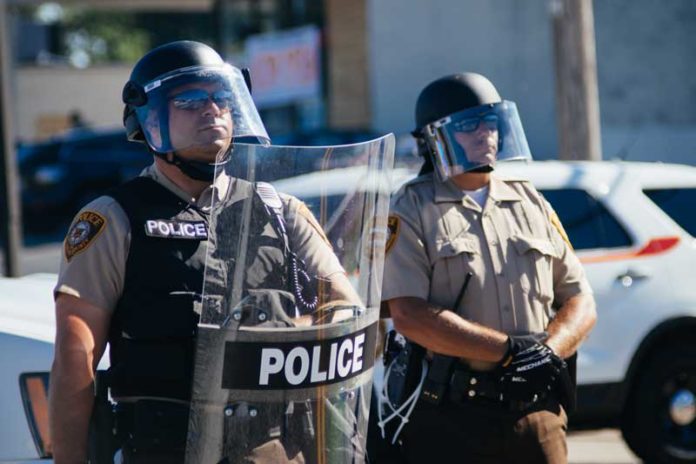Yesterday, two Ferguson law enforcement officers were shot directly in front of their police headquarters at the close of a protest.
The protest, following the resignation of Ferguson Police Chief Tom Jackson, was sparked by a scathing report of racism by the Department of Justice’s Civil Rights Division.
The two police officers have been released from the hospital.
The incident represents a wave of crime and aggression against law enforcement following the shooting of Michael Brown, a 6’5, 289 pound 18 year-old who attacked Ferguson Cop Darren Wilson. Brown had just fled the scene of a convenience store where he stole cigarillos and assaulted the store clerk when approached by Wilson.
Brown grabbed Wilson’s firearm after saying, “you’re too much of a f—ing p—y to shoot me.”
Wilson shot Brown six times in the struggle, proving the aggressive 18 year-old dead wrong.
Since the incident, Ferguson has devolved into a state of anarchy with riots and a complete lack of respect for law and order.
While advocates of the black community in Ferguson, bolstered by Obama’s Department of Justice, blame police racism for the chaos and call for mass resignations and “community policing,” advocates for law enforcement are left with their hands tied.
While the Internet has rand out with calls for Ferguson police to start “cracking skulls” increased police aggression will likely lead to stronger and violent opposition.
A theory posed by libertarian advocates call for complete withdraw of law enforcement from Ferguson.
The theory gains merit in that residents will be responsible for their own physical safety and protection of property.
Residents will be forced into civility or cries to bring back order through enforcement of the law.
While the theory is unlikely to be executed, the alternatives all lead to increased police aggression or increased criminal violence.
Should they stay or should the go?





























